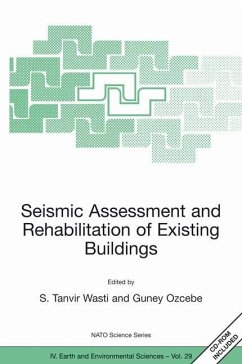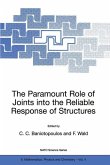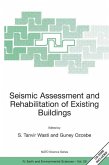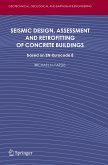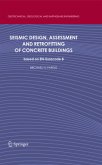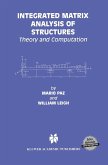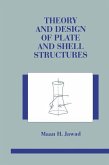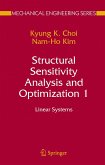The present volume contains a total of 23 papers centred on the research area of Seismic Assessment and Rehabilitation of Existing Buildings. This subject also forms the core of Project SfP977231, sponsored by the NATO Science for Peace Office and supported by the Scientific and Technical Research Council of Turkey [ TUBIT AK ]. Most of these papers were presented by the authors at a NATO Science for Peace Workshop held in Izmir on 13 - 14 May, 2003 and reflect a part of their latest work conducted within the general confines of the title of the NATO Project. Middle East Technical University, Ankara, Turkey serves as the hub of Project SfP977231 and coordinates research under the project with universities within Turkey, e. g. Istanbul Technical University and Kocaeli University, and with partner institutions in Greece and the Former Yugoslav Republic of Macedonia: A few articles have also been contributed by invited experts, who are all noted researchers in the field. Altogether,the contents of the volume deal with a vast array of problems in Seismic Assessment and Rehabilitation and cover a wide range of possible solutions, techniques and proposals. It is intended to touch upon many of these aspects separately below. Earthquakes constitute possibly the most widely spread and also the most feared of natural hazards. Recent earthquakes within the first six months of 2003, such as the Bingol Earthquake in Turkey and the Algerian earthquake, have caused both loss of life and severe damage to property.
"At the turn of the last century, builders pondering the havoc wreaked by earthquakes had scant resources to guide their reconstruction efforts. A century later, earthquakes continue tragic devastations of our cities, with one important difference - today's builders can turn to a rich literature in earthquake engineering to guide their reconstruction efforts. This volume on Seismic Assessment and Rehabilitation of Buildings is bound to become one of the valued resources of earthquake engineers who are building to reduce the tragedies of future earthquakes.
The volume is filled with brilliant contributions from renowned experts in earthquake engineering. Topics include seismic earthquake strong ground motion, dynamic response of structures, seismic assessment of older hazardous construction, and practical seismic rehabilitation methods derived from extensive laboratory and field research. Many of the contributions have been motivated by the tragic consequences, yet real-world experiences, of the 1999 Kocaeli and Düzce earthquakes in Turkey, and demonstrate the rapid progress that can be inspired by necessity. While the topic of this volume is especially important for Turkey and her neighbors, the lessons learned and clearly presented are universal and should be studied by serious earthquake engineers worldwide.
Among the volume's contents is a quote from W. Shakespeare, Julius Caesar, Act I, Scene III: "Are you not mov'd, when all the sway of earth Shakes like a thing unfirm?"
The earthquake engineering community can be thankful that Professors S. Tanvir Wasti and Güney Özcebe, Middle East Technical University, were moved to organize the workshop and associated papers that form the contents of this memorable volume. Their effort, documented in this volume, is one of great and lasting value."
(Jack Moehle, Professor and Director, Pacific Earthquake Engineering Research Center, University of California, Berkeley (July2003)
The volume is filled with brilliant contributions from renowned experts in earthquake engineering. Topics include seismic earthquake strong ground motion, dynamic response of structures, seismic assessment of older hazardous construction, and practical seismic rehabilitation methods derived from extensive laboratory and field research. Many of the contributions have been motivated by the tragic consequences, yet real-world experiences, of the 1999 Kocaeli and Düzce earthquakes in Turkey, and demonstrate the rapid progress that can be inspired by necessity. While the topic of this volume is especially important for Turkey and her neighbors, the lessons learned and clearly presented are universal and should be studied by serious earthquake engineers worldwide.
Among the volume's contents is a quote from W. Shakespeare, Julius Caesar, Act I, Scene III: "Are you not mov'd, when all the sway of earth Shakes like a thing unfirm?"
The earthquake engineering community can be thankful that Professors S. Tanvir Wasti and Güney Özcebe, Middle East Technical University, were moved to organize the workshop and associated papers that form the contents of this memorable volume. Their effort, documented in this volume, is one of great and lasting value."
(Jack Moehle, Professor and Director, Pacific Earthquake Engineering Research Center, University of California, Berkeley (July2003)

